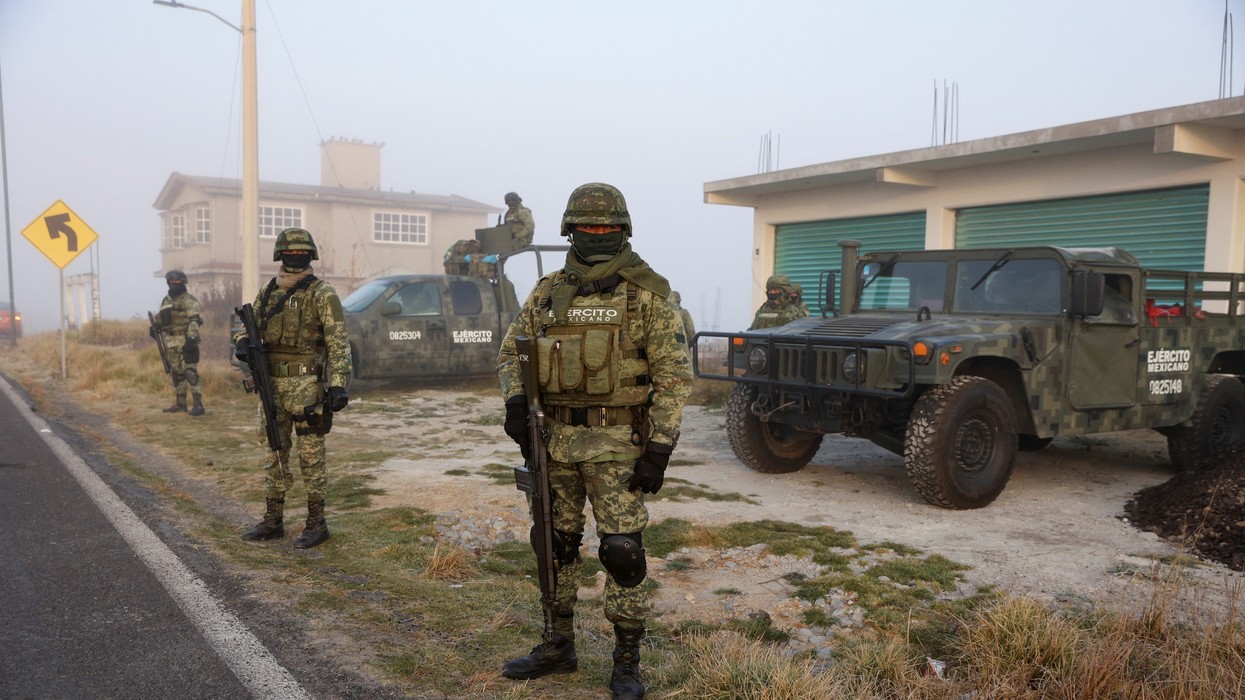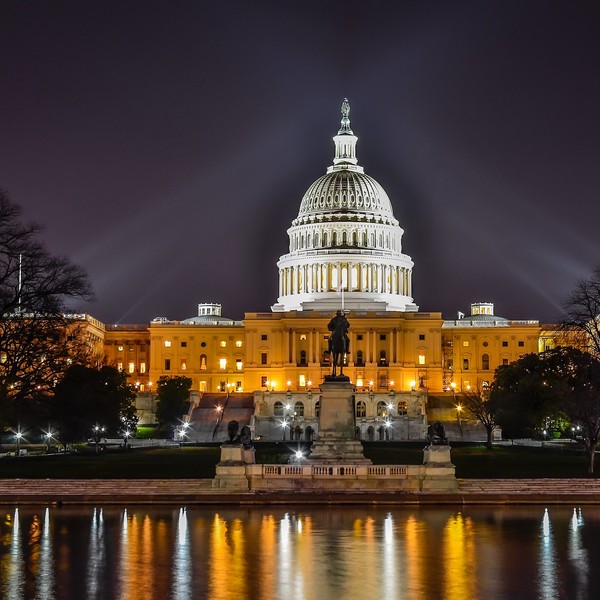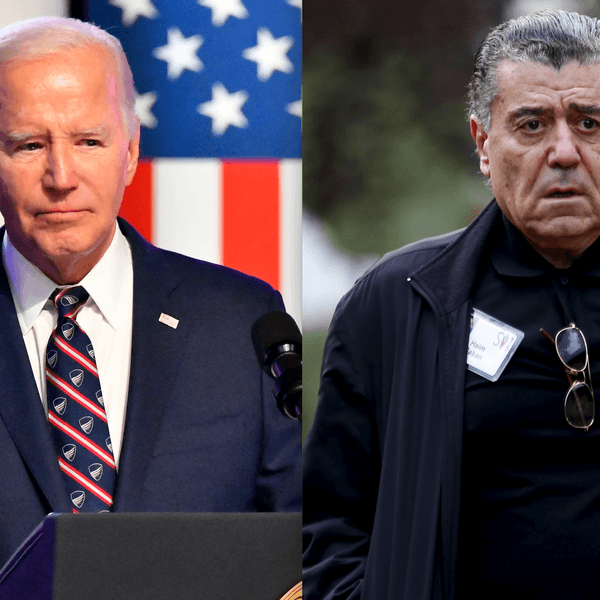A few hours before President Joe Biden’s White House meeting with his Argentinian counterpart, Alberto Fernandez, last week, the hawkish Sen. Ted Cruz (R-TX) introduced a bill that seeks to impose sanctions on a number of Argentinian officials associated with the current center-left government. Among those targeted is the former president (2007-2015) and current vice president of Argentina, Cristina Fernandez de Kircher (no relation to the President Fernandez). Rep. Maria Elvira Salazar (R-Fla.), who chairs the House Subcommittee on Western Hemisphere, will lead the effort in the House and reportedly intends to introduce a similar bill in the lower chamber.
Submitting his legislation, Cruz dubbed Fernandez de Kirchner a “deeply corrupt politician who has undermined Argentina’s rule of law and political institutions.” He also charged her with “undermining American security interests in Latin America by placing Argentina’s institutions at the service of Iran’s global terrorism campaign.”
While its ultimate passage appears unlikely, the resolution will please U.S. hawks who hold Latin America’s leftist governments in deep contempt. According to the White House readout, the issues of Fernandez de Kirchner’s alleged corruption and ties to Iran were not raised during Biden’s meeting with President Fernandez. And the Argentinian president dismissed the move as not having major significance; he called Cruz a “marginal figure.”
Even so, the bill is another expression of a dangerous addiction to sanctions and meddling which remains a cornerstone of the U.S. establishment’s foreign policy thinking when it comes to perceived adversaries abroad.
This is not the first time the Sen. Cruz has gone after Fernandez de Kircher. In August 2022, he penned a letter to Secretary of State Antony Blinken demanding that she be sanctioned. He has now taken the matter one step further by introducing his bill.
Cruz based his demand on the fact that an Argentinian judge sentenced Fernandez de Kirchner to six years in prison for corruption and a life ban on her holding public office. She, however, cannot be detained as she enjoys the immunity due to her position as the vice-president until December 2023.
Fernandez de Kirchner’s supporters dismiss the court’s findings as the fruit of a political vendetta carried out against her by the “judicial mafia.” In light of what happened in neighboring Brazil, where the former and current president Luiz Inacio da Silva, known as Lula, was imprisoned after a trial that lacked guarantees and which was eventually thrown out, it would be imprudent to completely dismiss such reservations.
Either way, Fernandez de Kirchner was quick to turn Cruz’s move to her advantage by portraying herself as a champion of Argentina’s national sovereignty and lambasting her opponents for serving the “powerful interests from the North.” She implied that the real reason why Cruz went after her was her decision to renegotiate, to Argentina’s benefit, the contracts of companies that operate in the Vaca Muerta field in the country’s south, the second largest shale gas reserve in the world.
Argentina will hold presidential elections later in 2023. Appealing to national sovereignty and casting her opponents as mere puppets of the United States can help galvanize Fernandez de Kirchner’s leftist base. The impact of the Cruz’s move on Argentinian politics may be fleeting for the moment, but to the extent it exists if at all, is much more likely to help the vice president than the opposition. It’s likely to be particularly helpful to her coming at a moment when her arch-rival, former president Mauricio Macri (2015-2019), announced his withdrawal from the presidential race, depriving her base of a polarizing figure to mobilize against.
As to the alleged security threat posed to the U.S. by Fernandez de Kirchner’s ties to Iran, it is an old charge that harkens back to the “memorandum of understanding” her government signed with the Islamic Republic in 2013. The purported goal of that agreement was to shed light on the murderous terrorist 1994 attack in Buenos Aires against the Jewish community center AMIA (Asociacion Mutua Israelita-Argentina).
Its detractors claimed that the memorandum was designed to let the Iranian state, at the time a prime suspect, off the hook in exchange for some spurious economic interests. Yet the agreement resulted in no such thing as the red notices issued by Interpol against the Iranian suspects were never lifted, and the controversial memorandum never entered into force in any event.
In his letter to Blinken, Cruz also implicated Fernandez de Kirchner in the 2015 death of the prosecutor Alberto Nisman the day before he was scheduled to testify to the Argentinian Congress to disclose evidence of her alleged intention to use the memorandum to cover up Iran’s alleged role in the terrorist attack. That charge was promoted and generously funded by the U.S. hedge fund billionaire Paul Singer as leverage to settle his share of Argentina’s sovereign debt in his favor.
However, the circumstances of the Nisman’s death — whether he was murdered or died by his own hand — remain murky to this day. As one of the most knowledgeable Argentinian journalists on the matter, Raul Kohlmann, notes, eight years of investigation failed to produce any evidence that Nisman was murdered, let alone on orders from the vice president. Nisman’s death, however, has become relentlessly politicized and transformed into a battlefield between the supporters and detractors of Fernandez de Kirchner.
The Israeli intelligence agency Mossad recently concluded that Iran played “no operational role” in the terrorist attack on AMIA and that it was perpetrated by its Lebanese ally Hezbollah acting on its own, most likely in retaliation for the assassination by Israel of its founder, Abbas Mousavi, in 1992.
Biden is unlikely to be swayed by Cruz’s arguments. However, the senator’s move is indicative of a broader addiction to sanctions that permeates Washington policy circles. It would be healthy if the administrations of both parties and Congress moved away from sanctions as a default tool of statecraft. It is a blunt instrument that, to be credible and effective, needs to be reserved for foreign politicians whose crimes are beyond any reasonable doubt and who pose a genuine security threat to the U.S. Fernandez de Kirchner and her allies does not pass the muster.
Abusing that instrument for domestic political purposes, as appears to be the case in Sen. Cruz’s initiative, will prove not only counter-productive in that it will likely boost Fernandez de Kirchner’s political fortunes, but risks further alienating a Latin American democracy where the image of the United States among the general population is among the least favorable.















